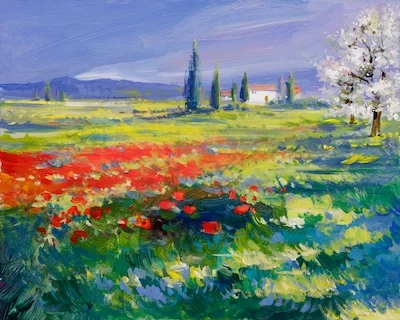
Ira Hoffecker, “She must find a way to preserve a sense of trust in people who are untrustworthy, safety in a situation that is unsafe, control in a situation that is terrifyingly unpredictable, power in a situation of helplessness,” 2019
tar, acrylic, oil, pastel, soil and charcoal on canvas, 98” x 138”
It was the American psychologist Carl Rogers, one of the founders of the humanistic approach to psychology, who said: “ What is most personal is most universal.”
It’s rare for an exhibition to affirm the verity of these words with as much depth and expressive power as Ira Hoffecker’s History as Personal Memory, at Edmonton’s Front Gallery from Nov. 7 to Nov. 26.
Hoffecker, a German-born painter based in Victoria, offers paintings that evoke an intimate environment of embodied gestures. In the gallery, the sound of her voice reciting a poem by Friedrich Nietzsche about the loss of homeland reverberates from an accompanying video.
This new body of work is a stark departure from Hoffecker’s previous geometric abstractions, which often featured map-like urban geographies that felt composed, even constrained. Here, the sense of control is lost. Hoffecker’s work – unearthing dark secrets from her personal and collective past – is visceral.
When Hoffecker was growing up in Germany in the ’60s, the atrocities of the Second World War were shrouded in silence. She had no idea of her family’s wartime activities until she began asking questions.

Ira Hoffecker, “Was ich hätte sagen sollen / What I should have said,” 2019
tar, acrylic, oil, pastel, soil and charcoal on canvas, 98” x 138”
The shock of discovering the truth of that terrible war’s horrors, along with her grandfather’s role as a captain in charge of aerial bombardments, was unbearable.
At the same time, she was concealing her own dreadful secret: sexual abuse at his hands. The silence of the adults around her exacerbated the trauma. Hoffecker turned inwards, rarely speaking at home.
It was only recently, with the support of therapy, that she began to give her trauma voice through art.
She began by setting large canvases out on the ground in her garden and smearing sticky tar onto them with her hands.
Then she chose excerpts from the journal she had kept as a teenager. It is filled with descriptions of her abuse and calls out to a God who failed to protect her: “Can it be fair that children have to suffer and go through the nightmare and no one is helping?” Other entries describe her struggle to cope, even as she tried to erase memories of the abuse.

Ira Hoffecker, “Lest We Forget,” 2019
acrylic, oil, pastel and charcoal on canvas, 40” x 30”
In her paintings, she has written out some of these words in delicate pink and skin tones. She has also included fragments of text from books by critical thinkers, including the French philosopher Michel Foucault. He deepened Hoffecker’s understanding of power dynamics as an active relationship, one that can even induce pleasure in those who enjoy the physical sensations of hate.
However raw the subject matter, my overwhelming response to Hoffecker’s work is neither helplessness nor despair. Her art reclaims individual power in the face of overwhelming odds. Her thoughtful analysis incorporates research into the ancient and tangled dynamics between perpetrators and victims – realities that continue, unfortunately, to plague us today.
The existence of this show is an act of courage and resistance, not only by Hoffecker, but also by the Front Gallery, which sent invitations to sexual assault centres and other social service organizations.
“Ira’s work is very important because it speaks to the relations of power,” says owner Rachel Bouchard. “It is a visceral reminder that owning our experiences, and coming to terms with the constructs of our psychology, can result in the most important dialogue, one which can ease the suffering and restore a power that was once repressed.” ■
History as Personal Memory is on view at the Front Gallery in Edmonton from Nov. 7 to Nov. 26, 2019.
PS: Worried you missed something? See previous Galleries West stories here or sign up for our free biweekly newsletter.
